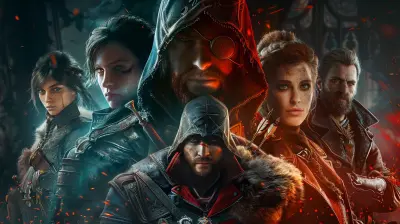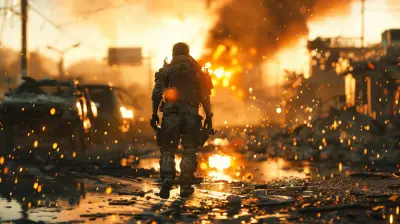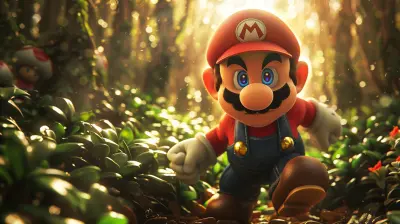The Dark Side of Fandoms: Toxic Gamers and Online Harassment
21 July 2025
Let’s face it, gaming is freaking awesome. It’s where many of us escape after a long day, bond with friends across the world, or lose ourselves in epic, unforgettable adventures. From battling dragons to building cities or just vibing out in an open-world sandbox, gaming has created communities that celebrate creativity, camaraderie, and passion.
But, unfortunately, not everything in the gaming world is sunshine and loot drops. There’s a dark underbelly to these fandoms—a side that doesn’t get nearly enough attention but impacts countless players daily. Yup, I’m talking about toxic gamers and online harassment.
You’ve seen it. Maybe you’ve even been a victim (or worse—a perpetrator). It’s that hostile environment lurking in Discord servers, Reddit threads, or post-match lobbies. It’s the trolling, the rage, the slurs, the gatekeeping, and all the nastiness that makes gaming feel like a warzone you didn’t sign up for.
Let’s unpack it all—what makes fandoms go from passionate to poisonous, how it manifests, and, most importantly, how we can tackle this issue as gamers. 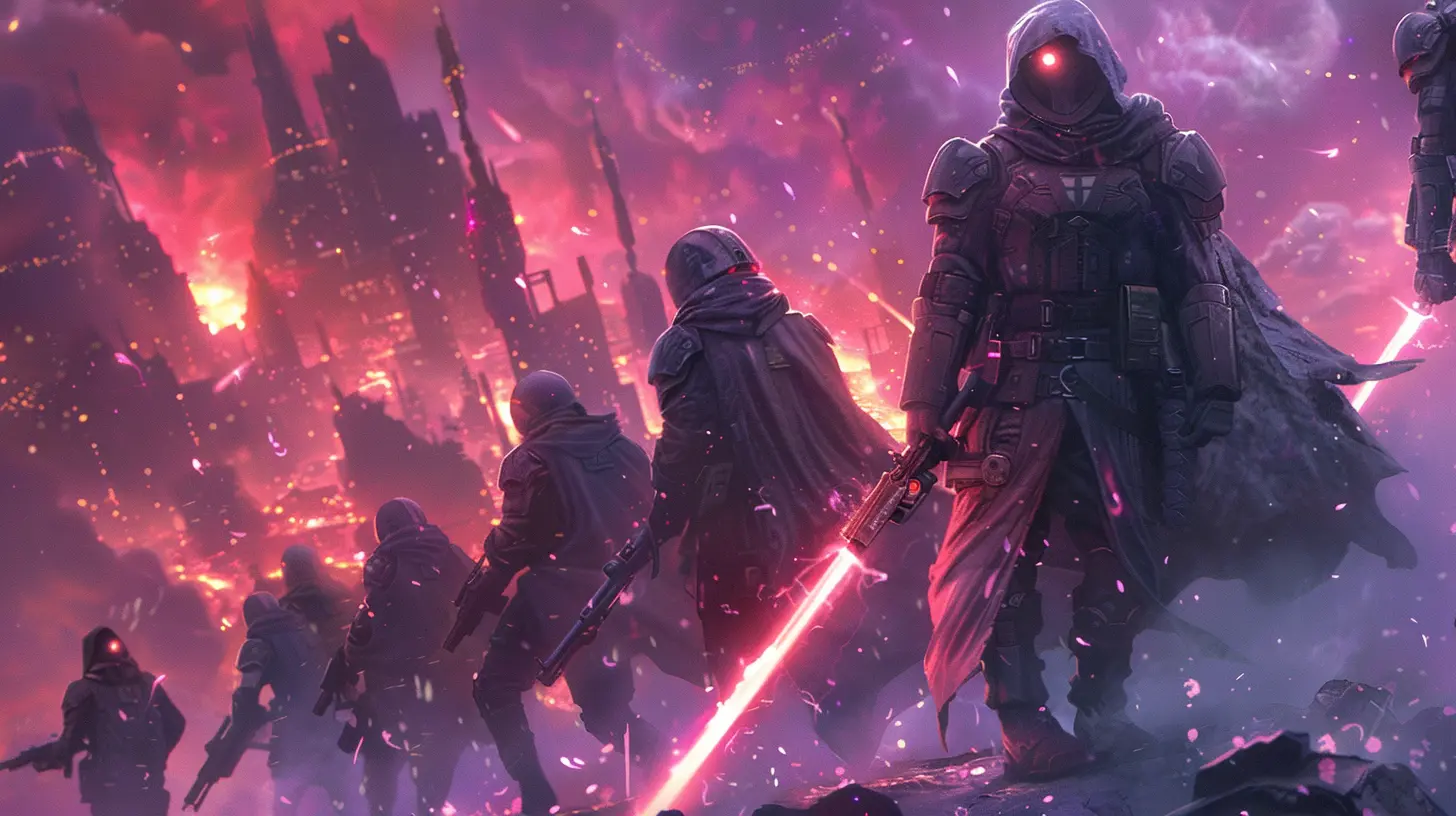
What Does "Toxic Gaming" Even Mean?
First off, let’s define what we’re dealing with here—because not all bad behavior is “toxic.” Having a bad day and tilting during a match is not the same as intentionally ruining someone else’s experience, right?Toxic gaming refers to consistent, harmful behavior within the gaming community. Think verbal abuse, hate speech, griefing, cyberbullying, or any actions that create a hostile environment. This isn’t just some petty drama; it can have real psychological effects, driving players away from games they love.
But here’s the kicker: toxicity isn’t just about one person being a jerk. It’s about how these behaviors spread, fester, and sometimes even get normalized in gaming communities. 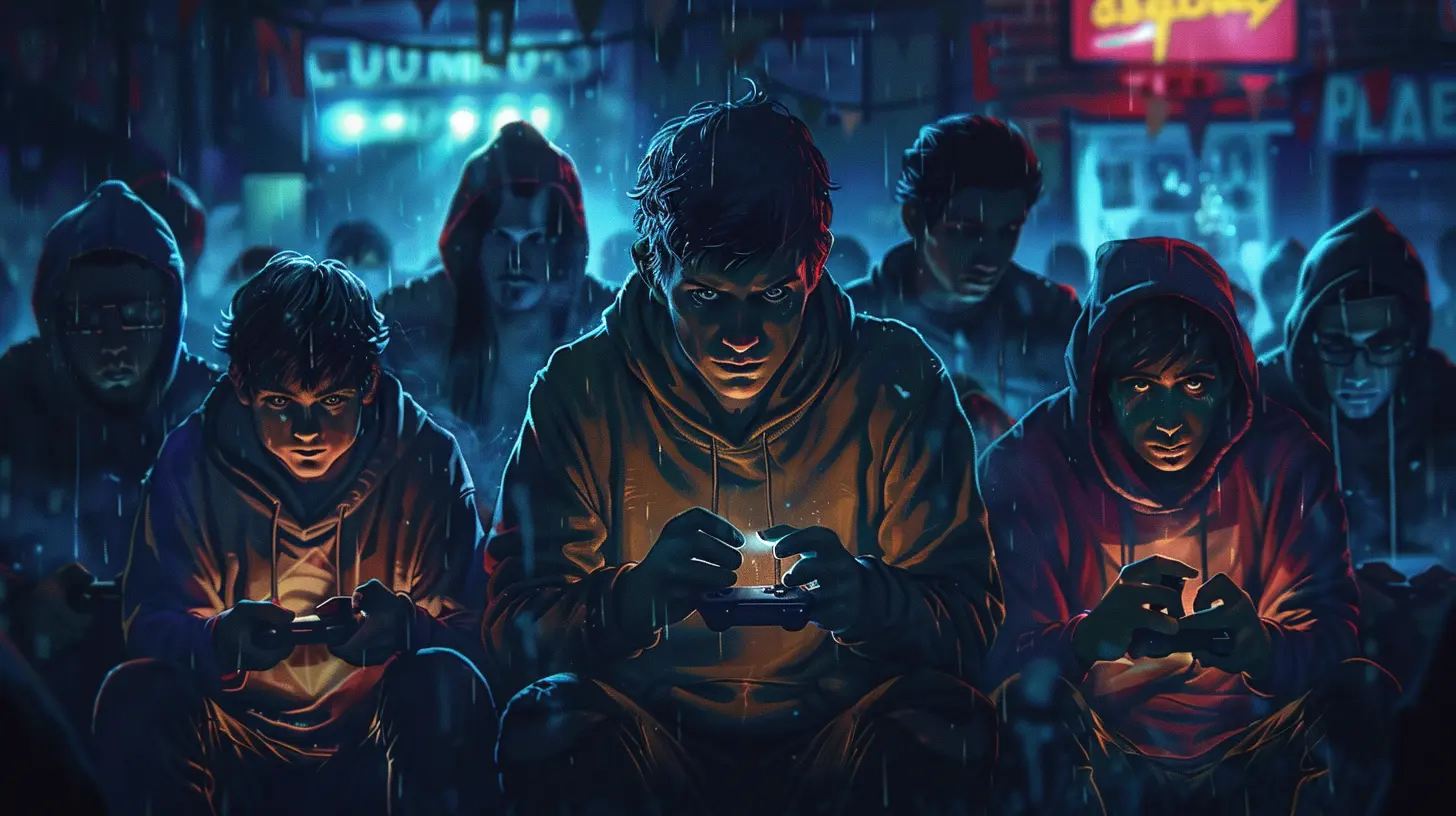
Why Do Fandoms Get So Toxic?
Ever noticed how the most passionate fandoms often seem to have the most drama? Yeah, it’s weird. But there are reasons for this.1. Passion Turns Into Obsession
Let’s be real—gamers LOVE their games. Fandoms are built around shared passion, which is awesome… until it spirals into obsession. Some fans become so emotionally invested in a game (or franchise) that any criticism or disagreement feels like a personal attack. And when emotions run high, things can get ugly.It’s like someone insulting your favorite pizza topping. A reasonable response? Brush it off. A toxic response? Start a fight and throw the pizza at them. Some gamers metaphorically throw their pizza.
2. Anonymity Breeds Boldness
The internet can be a beautiful thing, but it also gives certain people a mask to hide behind. When gamers don’t have to show their faces or use their real names, they feel emboldened to say and do things they would never dare to in person.Think about it—would “420SniperGod” call you a noob to your face in a coffee shop? Probably not. But online? They feel untouchable.
3. Competitive Culture
Gaming thrives on competition—leaderboards, ranked matches, speed runs—it’s all about being the best, right? But this competitive edge can also create a “win-at-all-costs” mentality, leading to rage, blame-shifting, and trash talk. For some, it’s no longer about having fun; it’s about dominance.4. Echo Chambers
Fandoms often form communities where like-minded people congregate. And while that can be great, it can also lead to echo chambers where toxic behavior is not only tolerated but encouraged. Insults become memes, harassment becomes jokes, and suddenly the entire group is complicit in creating a toxic environment.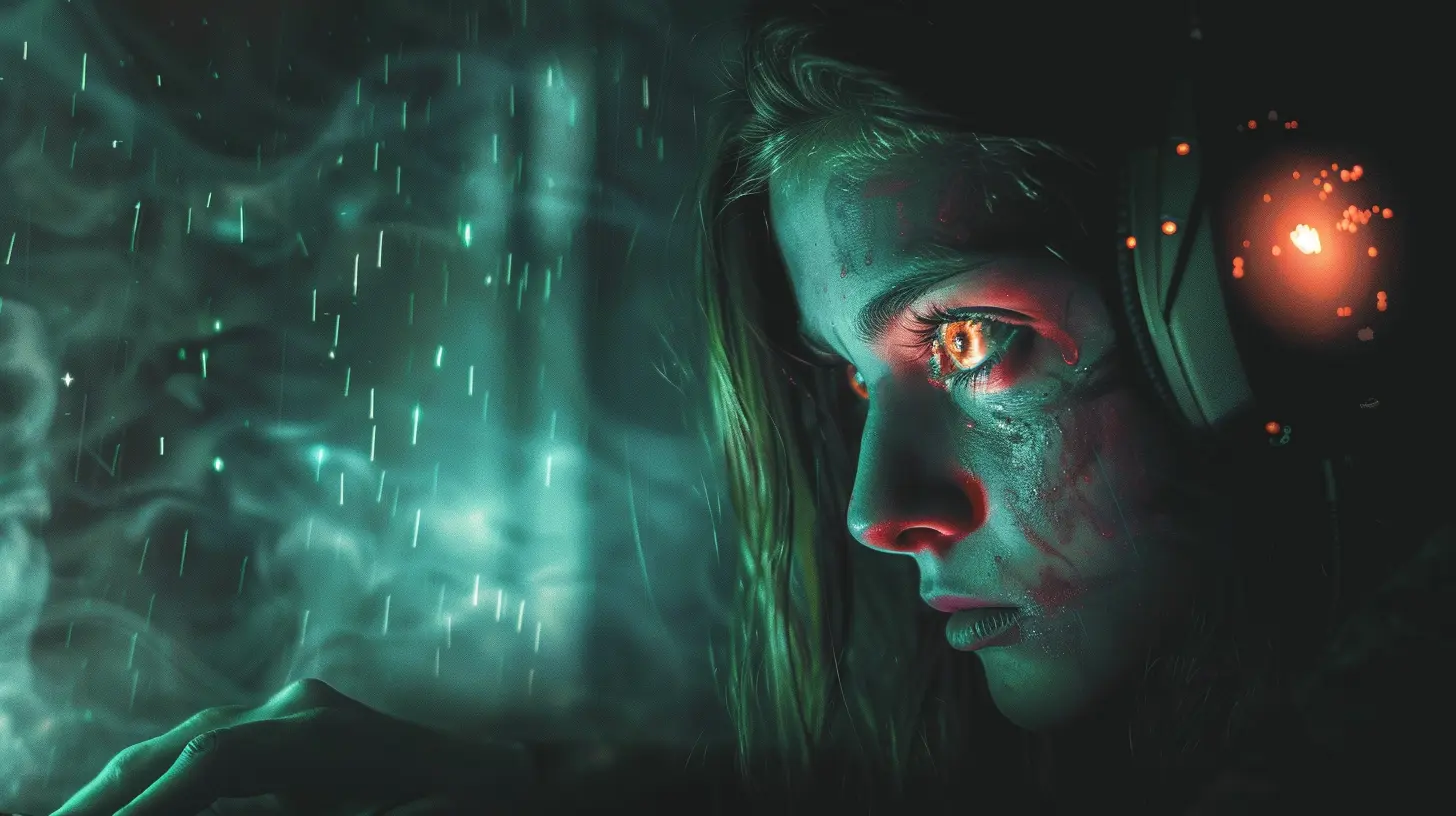
How Toxicity Manifests in Gaming
So, what does toxicity look like in practice? Unfortunately, it wears many ugly masks.Trash Talk Gone Too Far
Look, a bit of playful banter in a match can be fun. But when it crosses the line into personal attacks, racial slurs, or graphic insults, it becomes harassment. And sadly, for many gamers, this isn’t an occasional occurrence—it’s a daily reality.Harassment of Content Creators
The gaming world is full of talented streamers, YouTubers, and developers who pour their souls into creating content. But for some reason, they become a magnet for hate. Whether it’s because of their skill level, appearance, or opinions, they often face relentless trolling and bullying online.Gatekeeping
“Oh, you haven’t played [insert obscure 2003 indie title]? You’re not a REAL gamer.” This elitist mindset makes gaming feel like a toxic club with impossible standards. Newsflash: There’s no “gamer exam” you need to pass. If you play games, you’re a gamer. Simple as that.Targeted Harassment in Multiplayer Games
Some players take team-based games WAY too seriously. Instead of working together, they lash out at teammates, sending hostile messages or intentionally sabotaging matches. Or worse, they target individuals through doxxing or sending threats.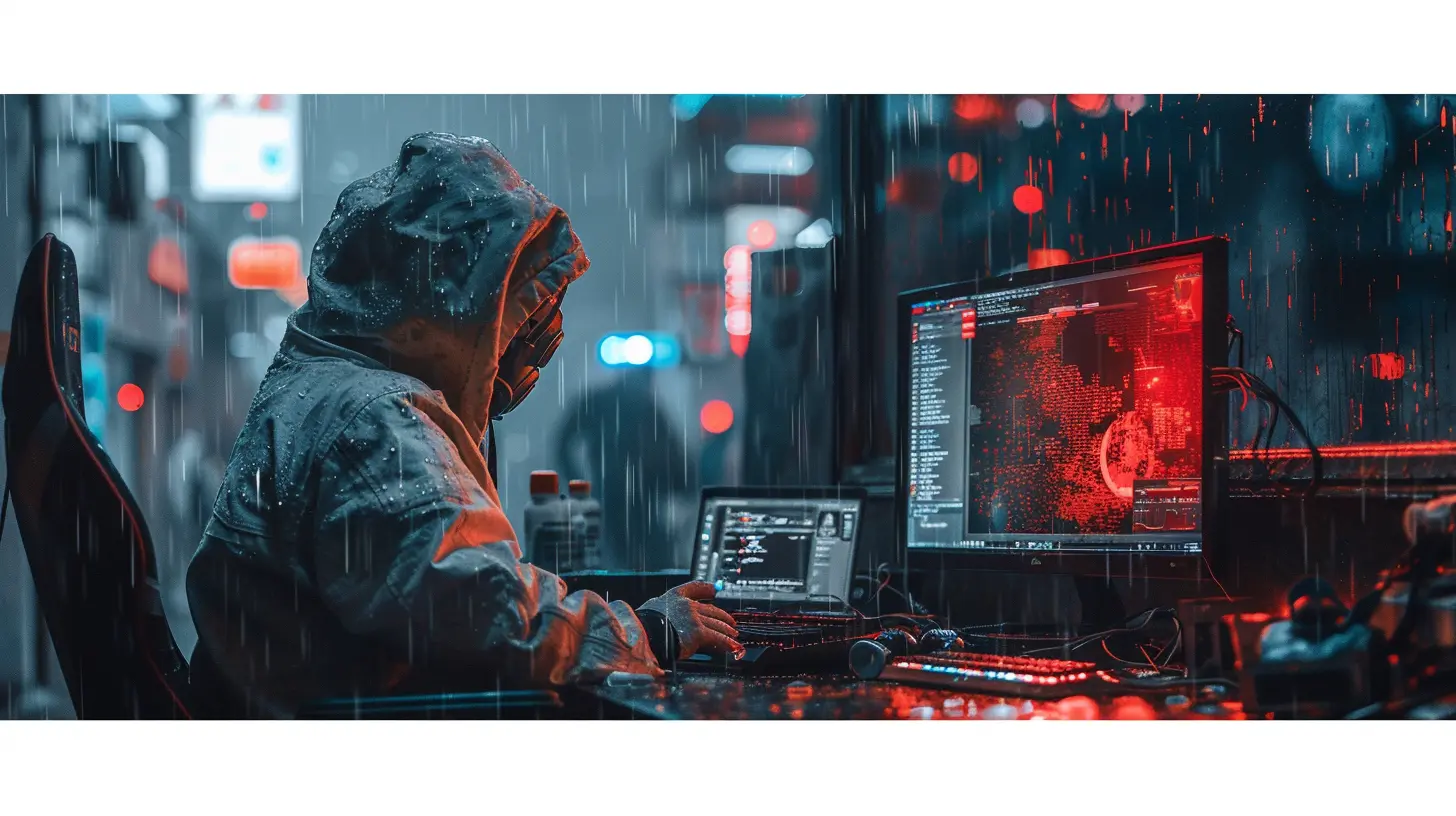
The Impact of Toxicity
Let’s not sugarcoat this—online harassment has consequences. And no, I’m not just talking about hurt feelings.- Mental Health Struggles: Constant exposure to toxic behavior can lead to anxiety, depression, and even PTSD.
- Exclusion: Women, LGBTQ+ gamers, and minorities often face disproportionate harassment, leaving them feeling unwelcome in gaming spaces.
- Community Erosion: Toxicity drives players away, shrinking communities and making the gaming space less inclusive overall.
Fighting Back: Can We Fix This?
Alright, so we’ve aired the dirty laundry. Now what? Is there a way to clean up gaming communities without losing what makes them fun? Absolutely. But it’ll take effort from ALL of us—gamers, developers, and platforms alike.1. Speak Up
First and foremost, don’t stay silent when you see toxic behavior. Whether it’s reporting a player, calling out a harmful comment, or just supporting a friend who’s been targeted—your voice matters.2. Set the Example
Be the kind of gamer you want to play with. Show sportsmanship, be patient with newbies, and keep your banter lighthearted and fun. When positivity spreads, toxicity has less room to grow.3. Hold Platforms Accountable
Gaming companies and platforms have a HUGE role to play here. They need to implement stronger moderation tools, clear reporting systems, and enforce consequences for toxic behavior. And guess what? As players, we can demand this of them.4. Foster Inclusive Communities
Want to combat toxicity at its root? Create spaces where players feel safe, valued, and included. Support diverse creators, participate in charitable gaming events, and celebrate what makes the gaming world so unique.Final Thoughts
Gaming is supposed to be fun—a place to unwind, connect, and express ourselves. But toxicity and online harassment steal that joy and turn it into stress and frustration. The truth is, we ALL have a role in fixing this.The next time you log on, ask yourself: Am I making this experience better or worse for the people around me? Because at the end of the day, the gaming world is what we make of it.
So let’s make it better, gamers. Deal?
all images in this post were generated using AI tools
Category:
Gaming CultureAuthor:

Francesca West
Discussion
rate this article
2 comments
Kairoth Matthews
Such an important topic! It’s wild how passion can sometimes turn toxic. Let’s remember to uplift each other and keep our gaming community welcoming. After all, we’re all here for the love of the game! 🎮❤️
January 22, 2026 at 5:06 PM
Cody McGonagle
Great article! It’s vital to address these issues in gaming communities. Promoting positivity and respect can help create a safer environment for all fans. Keep up the important work!
July 30, 2025 at 3:30 PM

Francesca West
Thank you for your support! Promoting positivity is essential for healthier gaming communities.
